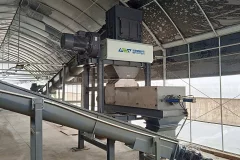
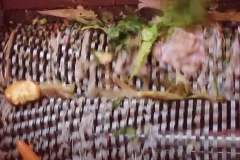
A key challenge for hotels in Africa, as in many parts of the world, is efficient waste management, particularly concerning food waste. The integration of small food waste shredders, like the GDF5 model, presents a viable solution to address this concern.Application in African HotelsEfficient Waste Management: The GDF5 food waste shredder, designed for compact spaces, has gained prominence in African hotels due to its ability to effectively process smaller-scale food waste. Its compact size aligns well with the limited spaces often found in these establishments.Sustainability Drive: These shredders contribute significantly to sustainability efforts in African hotels. By promptly managing food waste, they mitigate foul odors, reduce the risk of pest infestations, and facilitate the decomposition process, aligning with eco-friendly waste management practices.Equipment AdvantagesMany of our users, including our esteemed customers in Africa, often inquire about the exceptional longevity of our GDF food waste


How to Make Biogas from Food Waste
2023-02-05Food waste is a type of domestic waste, which is rich in organic matter such as vegetables and bones, and can be made into fuel, fermented to produce biogas, or fertiliser. Food waste accounts for about 50% to 60% of domestic waste, so it is important to make biogas from food waste instead of landfill to improve the utilisation rate of domestic waste. At present, domestic waste resource disposal centres generally process domestic waste into RDF fuel rods for power plants, and the production of biogas from food waste requires a clear classification at the source of collection and transportation. As food waste contains more organic matter, oil and grease, etc., and has a higher water content, there is a big difference between the treatment process and making RDF fuel rods. According to our AIShred's project, the biogas from food waste first goes through pre-sorting to remove large pieces of debris, then is shredded by a GDF food waste shredder, then through pre-sieving, organic matter fine sorting, pressing
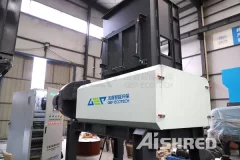
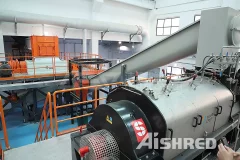
How Food Waste Can be Turned Into Treasure
2022-08-11Food waste is the waste generated by residents in their daily lives and in food processing, catering services and unit feeding activities, including discarded leaves, leftovers, leftover rice, fruit peels, egg shells, tea dregs and bones, etc. Its main sources are household kitchens, restaurants, hotels, canteens, markets and other industries related to food processing. Food waste contains very high levels of moisture and organic matter, which can easily spoil and produce bad odours. After proper treatment and processing, it can be transformed into a new resource. The high organic matter content makes it possible to use it as fertiliser and feed after rigorous treatment, or to produce biogas for fuel or electricity generation, while the oil and grease fraction can be used to prepare biofuels. AIshred can provide a complete front-end shredding and sorting system for volume reduction of the material. The general treatment process is double-shaft shredder + organic matter fine sorting machine + screw press +
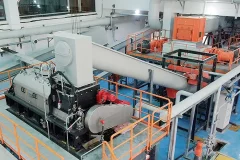
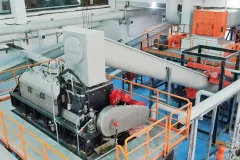
Organic Waste Processing
2022-03-03Organic waste is one of the last things that should end up in landfills, as it can be easily transformed into feed, fertilizer, or biogas with simple processing. However, the reality presents challenges as a significant amount of urban organic waste accumulates and causes environmental pollution due to insufficient disposal capacity, leading to the production of biogas, wastewater, and foul odors. Additionally, many organic waste streams are contaminated with non-organic components, posing a challenge in efficient separation.GEP ECOTECH's organic solid waste solution offers a complete suite of technologies for handling organic waste, including shredding, dewatering, sorting, bioprocessing, and safe disposal. Our comprehensive technical solutions also encompass the management of gases and liquids generated during the process.



